Publications
Articles, publications, books, tools and multimedia features from the U.S. Institute of Peace provide the latest news, analysis, research findings, practitioner guides and reports, all related to the conflict zones and issues that are at the center of the Institute’s work to prevent and reduce violent conflict.
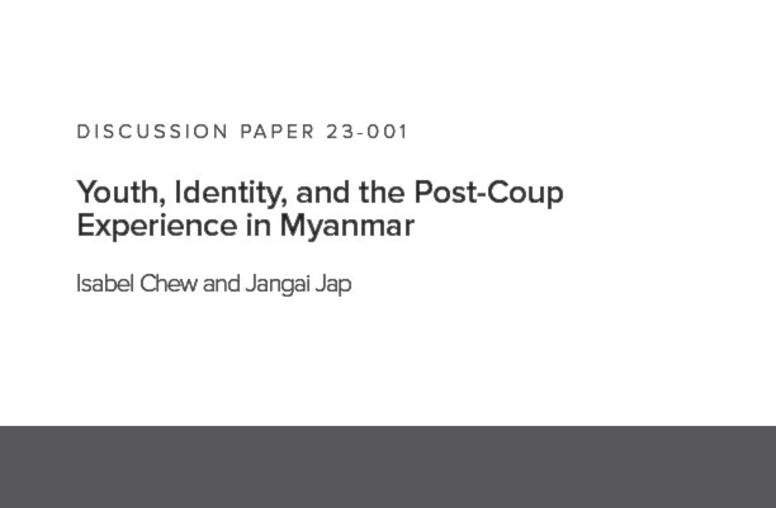
Youth, Identity, and the Post-Coup Experience in Myanmar
One of the biggest challenges facing Myanmar today is its lack of a cohesive national identity. Its colonial legacy and half a century of authoritarian rule has reified group divisions and hardened societal cleavages, leading to negative, and sometimes outright hostile, relations between different groups. Against this background, the authors discuss how the Myanmar youth perceive their social identity, in particular national identity, and how they conceptualize notions of citizenship within the Myanmar context, as well as the implications of the coup and the post-coup experience for the youth’s perceptions of social identity and interethnic relations in Myanmar.
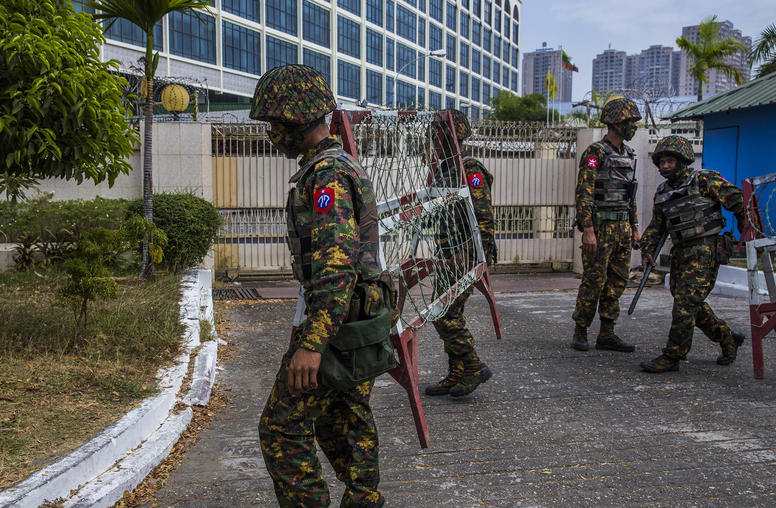
Atrocities in Myanmar: Documenting the Junta’s Attacks on Civilians
Even before the February 2021 coup, Myanmar’s military often deployed systematic violence against civilians, developing a reputation for ruthlessness that dates back decades. Their abuse of ethnic minorities such as the Rohingya have been the subject of countless international human rights investigations, while their nearly unchecked power allowed them to operate with impunity.
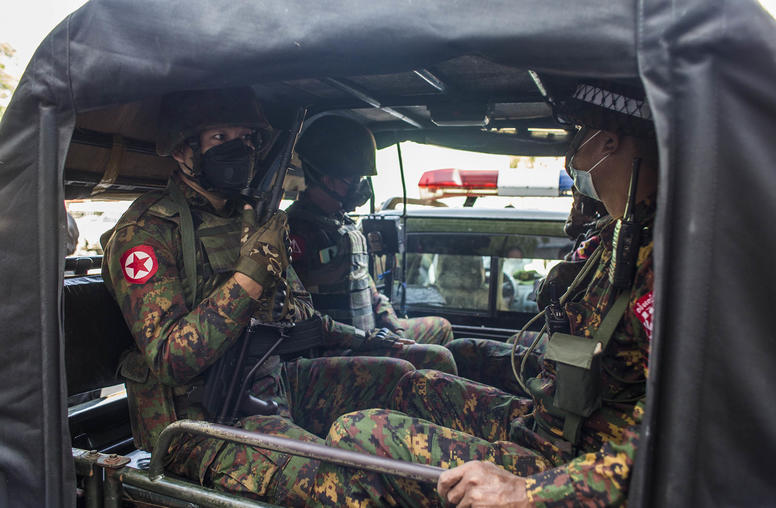
The Limits of Beijing’s Support for Myanmar’s Military
Since late 2022, Beijing has increasingly signaled the limits of its support for Myanmar’s junta against pro-democracy forces and protection against international efforts to hold the army accountable for its crimes. In particular, Beijing has demonstrated a reluctance when doing the junta’s bidding internationally results in significant political costs vis-à-vis its relations with Southeast Asian states or its reputation at the United Nations.
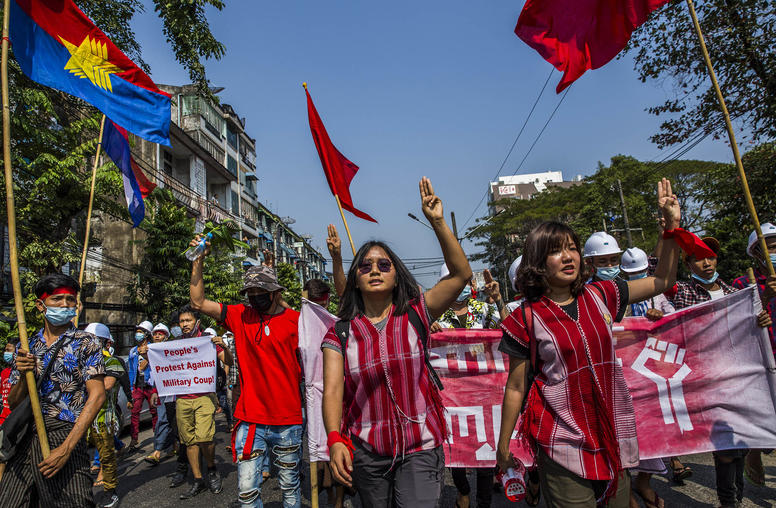
Two Years of Myanmar’s Junta: Regional Instability, Surging Organized Crime
Two years ago today, Myanmar’s military snuffed out the country’s democratic government in a coup and set about restoring the grim dictatorship that dominated the Southeast Asian nation for 50 years. But the generals’ initial moves — jailing civilian leaders, shutting the free press, issuing heavy-handed decrees — were the only things that went according to plan. To date, the coup has instead triggered myriad unintended effects. None are more urgent and consequential than the instability and crime that the generals’ power grab triggered across Southeast Asia, and none more directly implicate U.S. interests in the region.
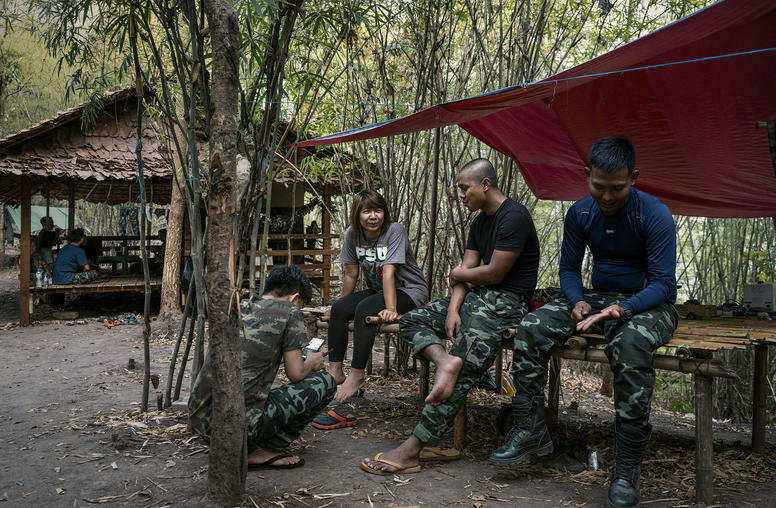
The Role of Women in Myanmar’s Evolving Security Institutions
Myanmar’s women have assumed an unprecedented leadership role in the pro-democracy resistance since the 2021 coup. From nonviolent protest movements to fighting in People’s Defense Forces (PDF) to the National Unity Government (NUG), women have been instrumental in the fight against the ruling junta’s brutality and oppression. But as Myanmar’s network of resistance groups slowly weakens the junta’s grip, resistance leaders are now faced with a daunting task: How do you re-establish security and stability in a country long plagued by civil conflict?
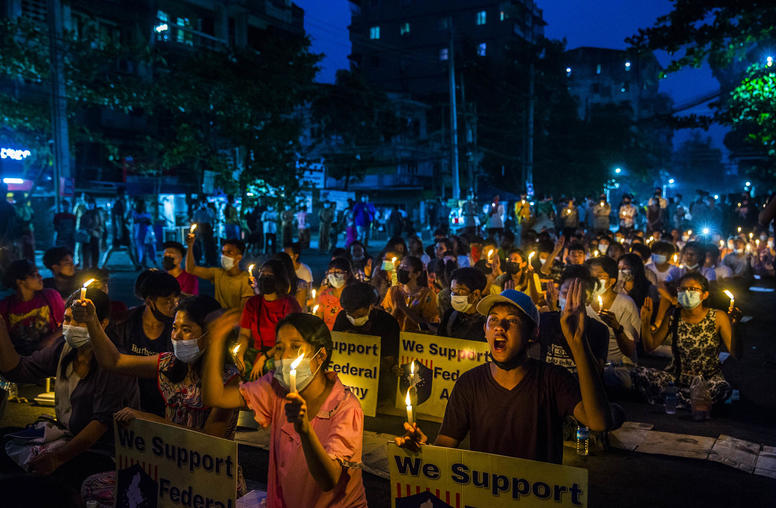
For Myanmar, the Only Path to Stability Runs Through its Web of Resistance Forces
Even as Myanmar’s resistance forces gain ground on the battlefield, much of the international community continues to view the country’s anti-coup movement as fragmented and lacking cohesion. That perception has led some to throw up their hands and disengage from the conflict, while others are considering accepting the junta’s sham elections as a path to restoring stability. Both the premise and conclusion are wrong.
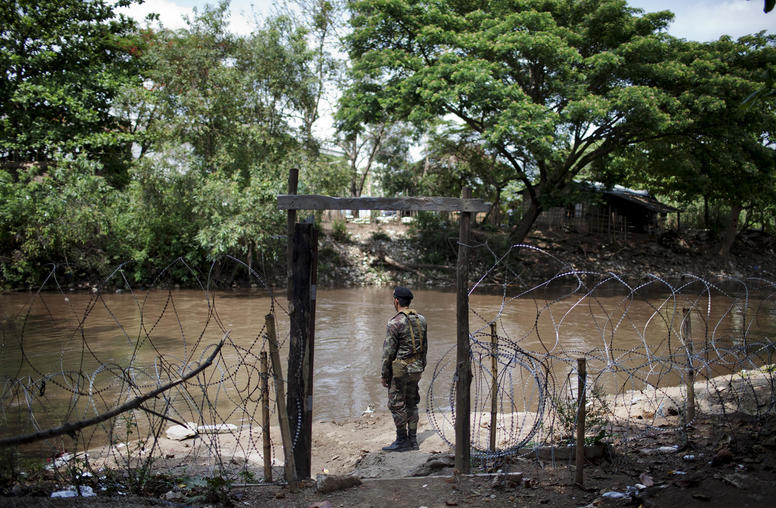
Myanmar’s Criminal Zones: A Growing Threat to Global Security
International media and law enforcement are waking up to a new post-COVID trend in transnational crime: the proliferation of criminally run zones in Myanmar and across Southeast Asia, and an explosion of human trafficking for labor in these ungoverned enclaves.
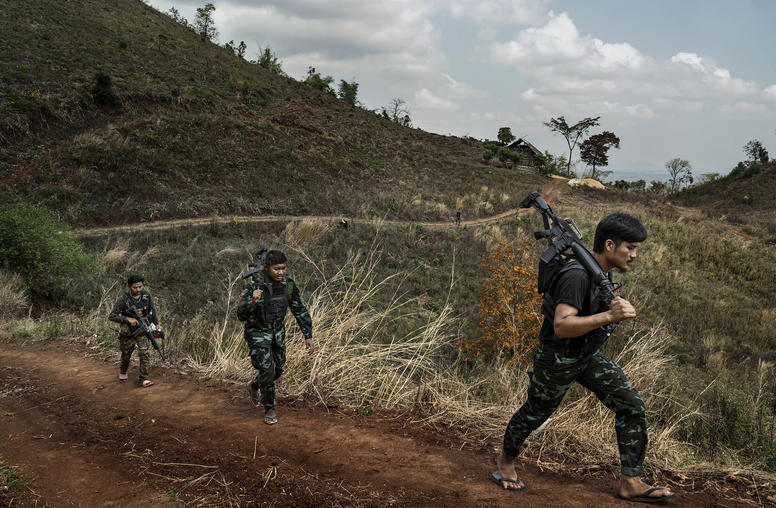
Understanding the People’s Defense Forces in Myanmar
When the People’s Defense Forces (PDFs) first coalesced in Myanmar in 2021, many viewed them as hastily organized groups of young vigilantes who would be quickly overrun by the junta’s military force, known as the Sit-Tat. Instead, the PDFs have grown in size, organization and capability over the last year and half, and now pose a major threat to the junta’s viability. Though they lack heavy equipment, an advanced command structure and international support, the proliferating PDFs have demonstrated remarkable tactical ingenuity and resilience. If they improve their command structure and weaponry, they could help expand territory under resistance control and hasten the junta’s demise.
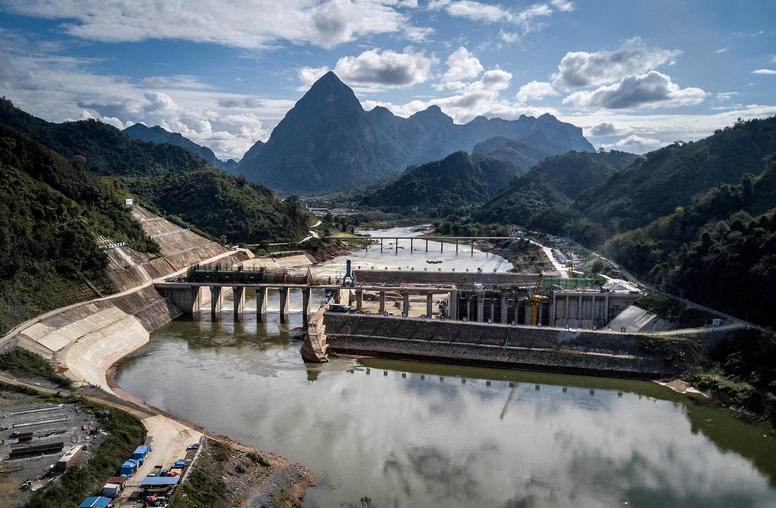
How to Balance Hydropower and Local Conflict Risks
In the face of rapidly expanding solar and wind energy technology, it’s easy to forget about hydropower. Hydropower was first harnessed to turn mills and grind grain, but today it generates more electricity than any other source of renewable energy. But while dams can spur development, help manage water resources and improve access to affordable electricity, their impacts on local communities and the environment can have a dark side.

In Myanmar, Sham Elections Aren’t the Path to Stability
The head of Myanmar’s military junta is talking increasingly about holding national elections next year despite the near certainty that prevailing conditions would make a democratic result impossible. Even if General Min Aung Hlaing was pondering a good-faith effort — which he is not — the country’s political and security situation would likely preclude anything more than a fig leaf outcome. So, the dictator is still mulling whether elections would benefit the regime. Meanwhile, he is laying the groundwork for a sham process to make himself president and cement military rule. Though the nature of these schemes should be obvious to the international community, many view the proposed vote as the most realistic path to stability and democratically elected government. That hope is badly misplaced.